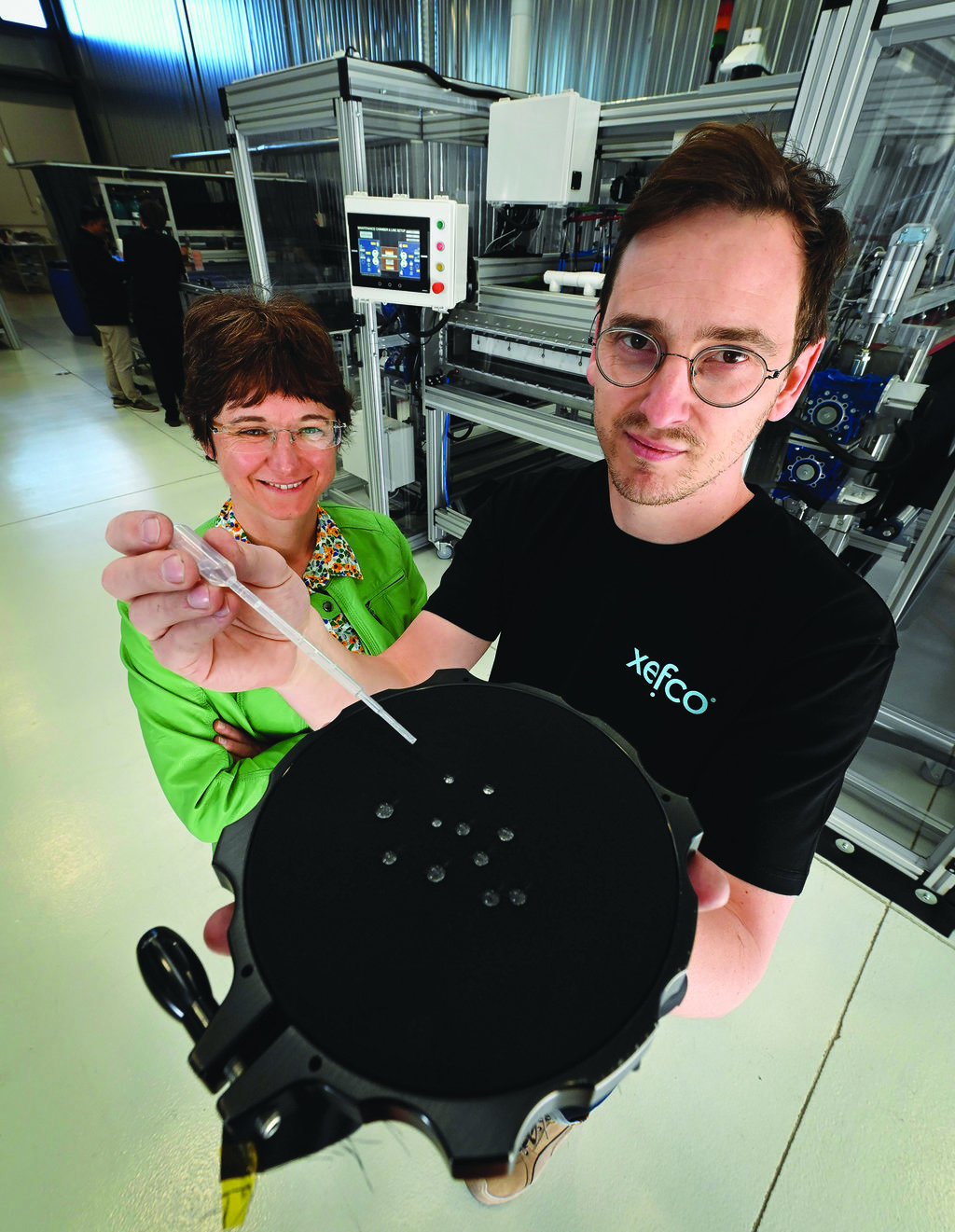Project to research water-wise jeans
A PARTNERSHIP between Deakin University and with Geelong-based company Xefco aims to reduce the world’s fashion footprint and create a “greener” pair of jeans.
Deakin is working with Xefco as part of its Recycling and Clean Energy Commercilisation Hub (REACH) to conduct new research to transform how clothing, including jeans, gets its colour.
Jeans are one of the most worn garments in the world but are also one of the least environmentally-friendly, taking about 75 litres of water to dye a single pair.
The partnership will explore if a waterless manufacturing process can replace the water-intensive processes the clothing industry has used for hundreds of years.
This process under development is called “Ausora”, and the pilot plant is co-located with Deakin researchers at ManuFutures, the advanced manufacturing hub at the university’s Waurn Ponds campus.
Associate Professor Alessandra Sutti from Deakin’s Institute for Frontier Materials said it was exciting to be on the commercialisation journey with Xefco, to work with the company to discover what is possible.
“If successful, the Ausora technology, which colours fabrics without the need for large quantities of water, will put us a step closer to more efficient and sustainable clothing manufacturing.”
Xefco chief executive officer Tom Hussey said the company’s new pilot plant would test different materials, including specialised fabrics such as waterproof items such as outdoor jackets and jeans.

“This is the first stage of Xefco’s vision for the technology, with the REACH project focused on demonstrating the commercial viability of the technology at pilot scale and developing processes so it can be scaled up for commercial production.
“Together, Deakin and Xefco will push the limits of innovation and see what is possible.”
Founded in 2018, Xefco now employs 17 people and its products are used around the world.
Its XReflex technology, which reduces consumption of insulation materials, is being used by some of the world’s leading apparel and fashion brands including The North Face.
REACH is partly funded by a $50 million grant from the federal government’s inaugural Trailblazer Universities Program, with industry and university support taking the total project value to $380 million.
The hub is facilitating the development of greener supply chains and accelerating business success as markets move from a throughput economy to a circular economy.
For more information on REACH, head to deakin.edu.au/reach


















